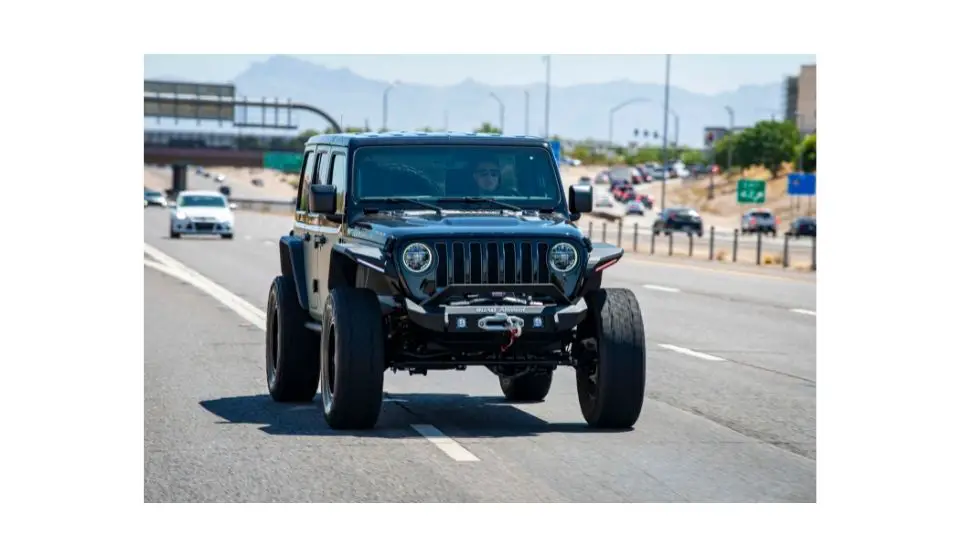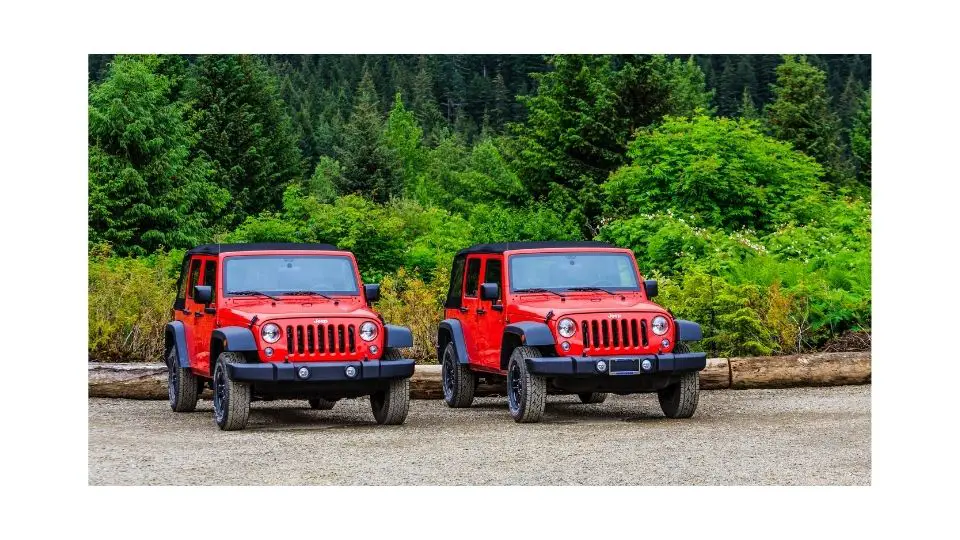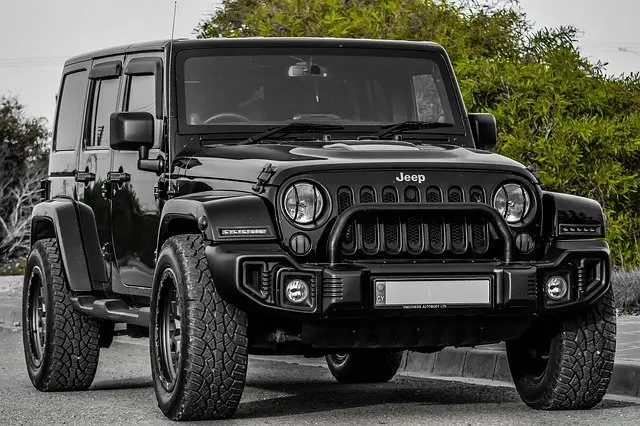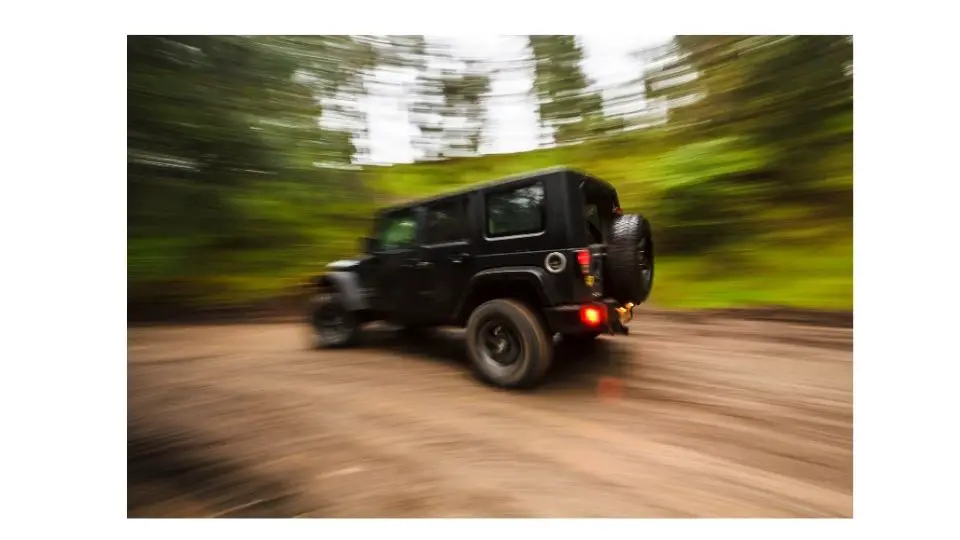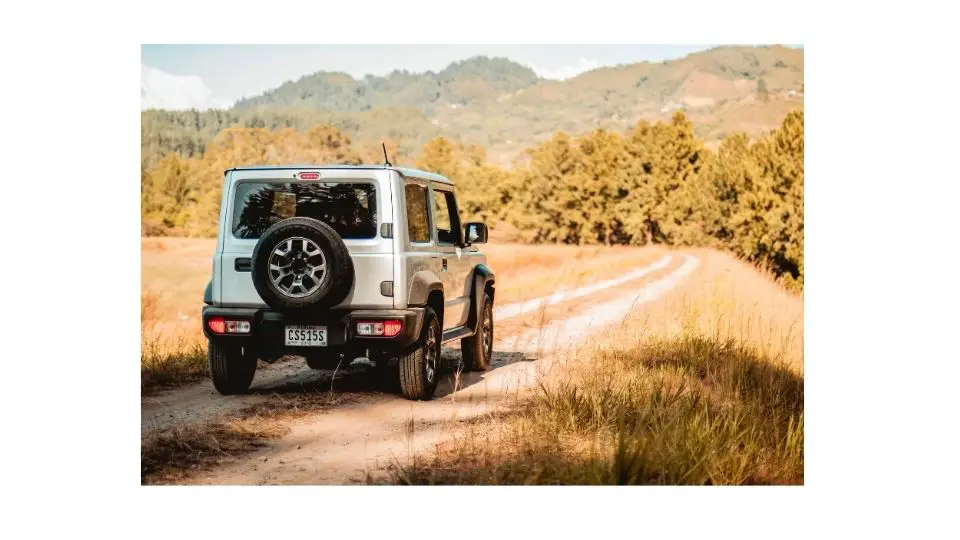Many Jeep owners complain of a weird clicking noise that has gradually become a part of the car’s usual operation. This clicking noise often becomes louder as the engine reaches an operating temperature. This noise usually sounds like a ticking noise or like the sound of a clicking pen. Also, this sound may or may not be in synchronization with the wheel speed at that time.
Your Jeep Wrangler clicking noise while driving could be owed to many possible reasons. Your hydraulic filters could be worn out. There could even be a leak in your exhaust manifold. Your purge solenoid valve could have gone bad or your U-joint could be dry. This noise can also be traced to a dry CV joint or low oil levels in the vehicle. Many times, the reason lies in the faulty oil pump drive assembly.
Inspecting Your Wrangler
You need to pay attention to the situations under which this noise emanates. If the clicking only starts when your vehicle is accelerating, this issue could be related to your drivetrain.
Furthermore, if this ticking sound tends to get louder when your vehicle reaches an operating temperature, this could be related to inadequate lubrication.
In case this sound gets louder when the operating temperatures are cold and dissipates with the warming of the engine, it could be related to the engine’s head portion. It is essential that you pay close attention to the characteristics of this noise and figure out the reason. Note whether the sound emanated from your Jeep matches some of the commonly reported symptoms.
Pay attention to the type of noise and whether it sounds like a clicking pen. Also, such noises are often more audible at slower speeds or when you are driving next to a wall. Note whether the ticking is in synchronization with the engine RPM or wheel rotation and whether it gets dissipated at high speeds.
What Causes Clicking Noise While Driving
Failing Hydraulic Lifters
Many Jeep owners report the disturbing ticking and clicking noises that their lifters emanate. You should be careful in this assessment to not confuse the ticking of the lifter with the injector rattle.
Rattling injectors can also be quite a headache if they happen to go bad. However, the tickling of a lifter is relatively common in Wranglers. A lifter starts ticking when there is a gap between the pushrod or the camshaft.
Such a gap could break the continuity of contact between the lifters and lead to such noises. The hydraulic lifters also tend to wear out with age. You may be surprised to learn that many Jeep owners decide to ignore this noise or get used to it.
Although, if it bothers you, you must rebuild the head of the cylinder with the help of new lifters. Note that this repair may be somewhat expensive. A quick solution is to employ oil additives and render some quietness to the working of your engine.
Exhaust Manifold Blown
It is common to spot the exhaust manifold blow as a reason behind the constant ticking noise. Note that the noise emanating from this component will be more audible on a cold startup. This clicking noise resembles the metronome of a musician and occurs in synchronization with the engine RPM.
This excessive ticking noise usually emanates when the manifold bolt breaks itself loose completely. This allows the exhaust gases to escape in this area and lead to the production of this noise.
You can identify such a leak with the help of a soapy water combination that is sprayed around the whole manifold. The formation of bubbles will clearly indicate the source of the leak. You must check all the bolts and repair any missing or broken parts.
Purge Solenoid Failure
All Jeep Wrangler models have a duty cycle EVAP canister purge solenoid. This component regulates the rate of flow of vapor from the evaporation control system canister to the intake manifold.
All the more, this solenoid is attached to a bracket situated in the engine compartment near the EVAP canister. The operation of this solenoid is reliably smooth unless there is a flaw with its installation.
Also, the ticking noise is a normal occurrence and can be felt by placing a hand on top of the solenoid. However, it is not normal for this ticking noise to be heard inside the cabin. You may have to replace the valve if such a sound is apparent on the inside.
Ujoint Problems
Jeep Wranglers have 4 U-joints. There is one U-joint on each end of the front axle and one on the front drive-shaft. The last U-joint is situated on the rear driveshaft that connects to a rear diff. Worn-out U-joints are known to emit clicking sounds upon their rotation.
One must note that their wearing out is enhanced by the lack of adequate lubrication. If such a problem is detected, it is recommended that you don’t drive your Jeep until appropriate repairs are complete.
Any negligence could cause further damage to the brake lines, the drive shaft, or the transmission lines. This issue can also be owed to the tiny pin-shaped bearings in the short cross-shaped joint.
A distinct clicking sound may also be produced when these bearings lose lubrication and dry out. Such a clicking noise will be audible upon each rotation of the drive shaft. In such a situation, you must check the U-joints of your Jeep at the point where the stub shaft joins the inner axle. The clicking noise could be produced because of a dry U-joint or a missing C-clip.
You must also check whether the U-joint cap has shifted. This would mark its contact with the C on the rotation of the driveshaft. During the replacement of the U-joint, you must make sure that all your needle bearings are nicely lined up in front of you. This is important for a tight and dependable fit of the cap.
Worn Bearing Hubs
A clicking noise could also emanate from a worn-out or dry wheel bearing hub. This usually happens when there is excessive endplay on the bearing. This problem can be easily solved by a proper inspection and lubrication of these components. If needed, the hubs should be replaced.
Conclusion
It is not easy to identify the exact source of such ticking noises. It is important that you thoroughly analyze each of the possible components and then identify the culprit. Bad lifters are a common source of such problems. You must get your Jeep thoroughly inspected by a qualified mechanic to get to the root of this issue. It is not okay to ignore the various noises that may emanate from your Wrangler.

